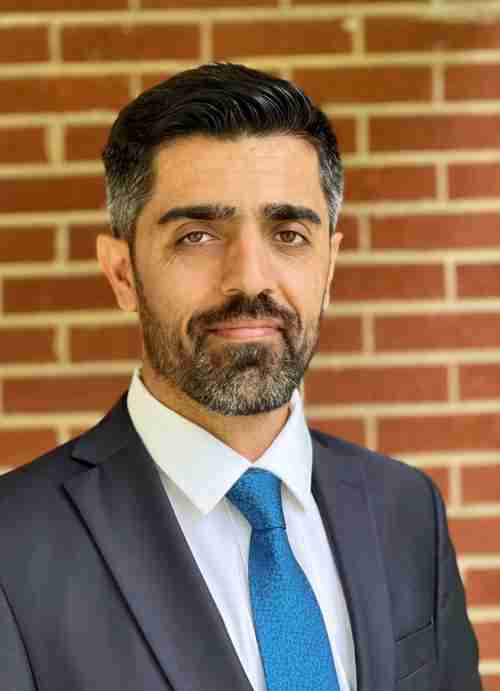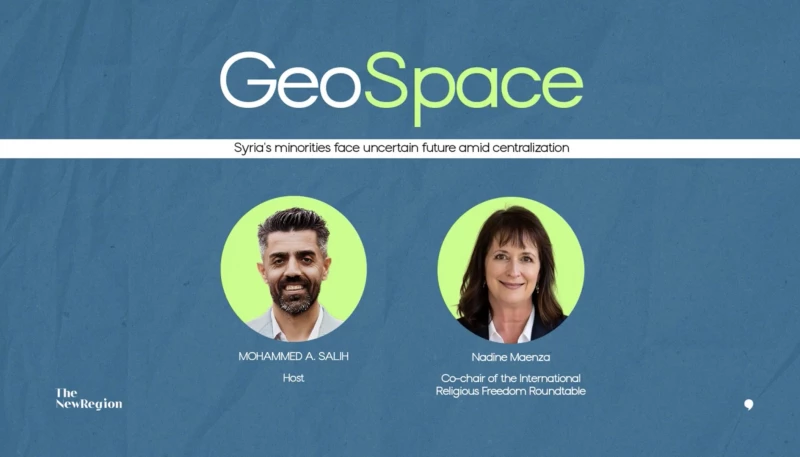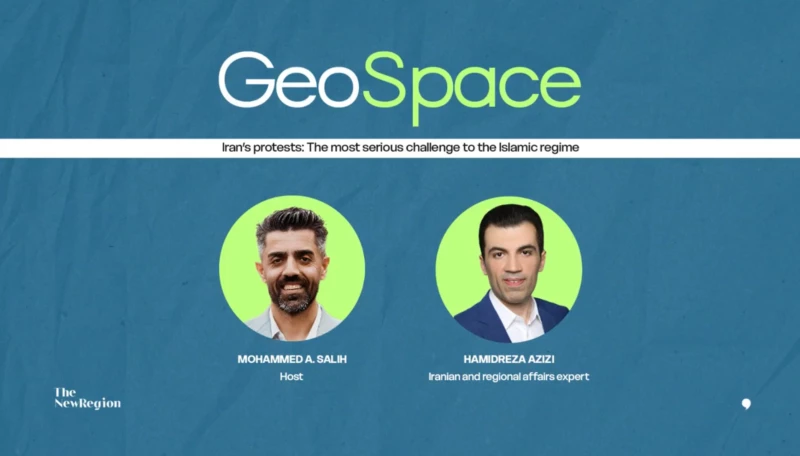In the latest episode of The New Region’s GeoSpace series, host Mohammed A. Salih spoke with Robin Yassin-Kassab, a Syrian-British writer and co-author of Burning Country: Syrians in Revolution and War, to discuss Syria’s ongoing political transition following the fall of Bashar al-Assad in December last year. The conversation explored the country’s transitional justice, the future of minority rights, and the potential for decentralization under President Ahmed al-Sharaa’s rule.
Yassin-Kassab, who visited Syrian twice in the spring and summer of 2025, said that the mood among Syrians shifted noticeably over those months. He described the palpable “euphoria” the first time round, with the fall of the Assad regime offering a glimmer of hope to Syria’s long-suffering population. However, disillusionment became salient during his second visit as economic struggles, sectarian tensions, and violent clashes inspired anxiety amongst the populace.
“Less than ideal” is how Yassin-Kassab termed the country’s transition period, highlighting the centralization of power by Sharaa and the absence of an inclusive national dialogue. He noted that some progress has been made in the form of local councils and civic groups, though warning that the political system at large remains deeply fragile and prone to abuses given its centralized nature.
Discussing transitional justice, Yassin-Kassab stressed that most Syrians want “law and order, not vengeance,” despite sporadic revenge-driven masscares and sectarian atrocities having marred the country’s political landscape.He further asserted that a comprehensive and trusted judicial system is fundamental to ensuring genuine transitional justice. Evidence of grassroots reconciliaton efforts across the country, including efforts to foster cooperation between different confessional factions, offers a positive note in this regard, the author noted.
The conversation turned to prospects for Syria’s future, with Yassin-Kassab calling for a democratic and decentralized state in which a greater degree of autonomy is granted to local institutions, arguing that such a move could counter-intuitively strengthen national unity and encourage tolerance and coexistence.
Yassin-Kassab also touched on the role of foreign powers, asserting that external actors prioritize vested interests such as counterterrorism and the containment of refugees as more important than promoting democratic change. The fickle interests of foreign powers do not offer a sustainable pathway for Syrian progression, he commented, asserting that internal forces must drive change.
Concluding the discussion, the author emphasized the need for a “gentle democratization” process that sees a gradual rebuilding of state institutions. He expressed hope that liberal Syrians from both majority and minority communities can unite around a shared vision for a democratic, multicultural Syria governed by ballots, not bullets.


 Facebook
Facebook
 LinkedIn
LinkedIn
 Telegram
Telegram
 X
X


